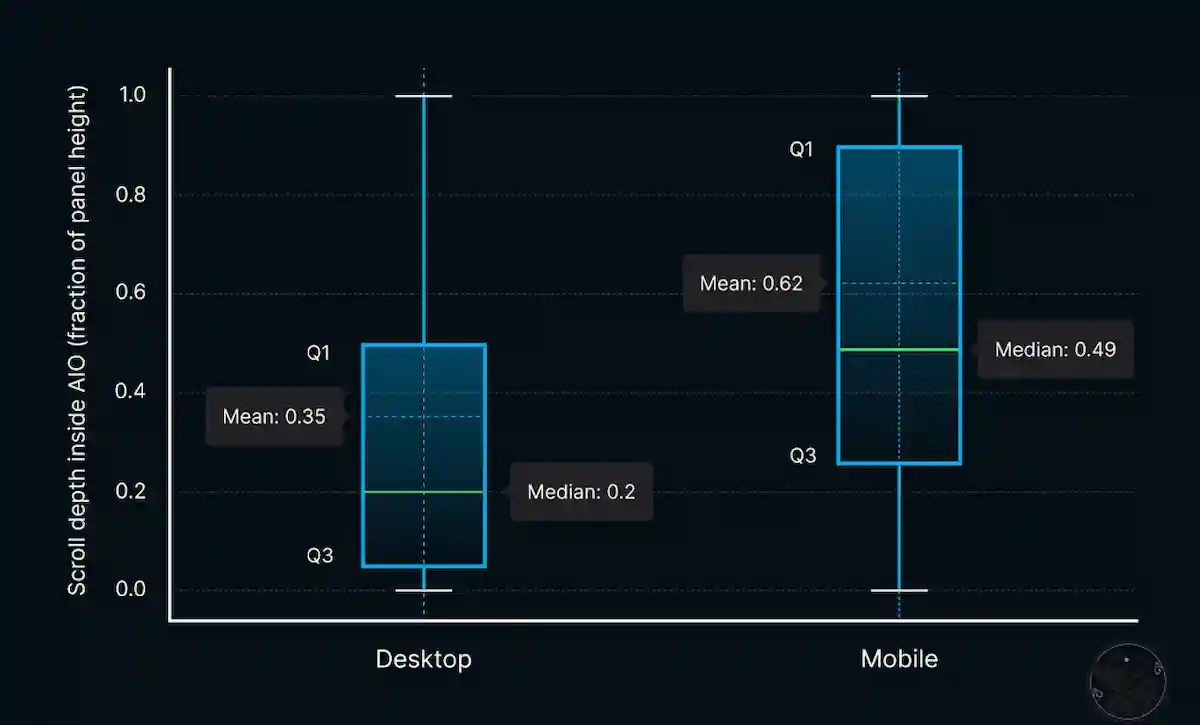On LinkedIn, Jesús Sánchez Jara publishes a study examining how users behave when presented with AI Overviews, and the results are chilling for professionals such as this writer, for journalists, and for many others like SEOs.
First and foremost, the loss of traffic to original content sources is both real and measurable. In this study, its executive summary quantifies a two-thirds drop in desktop traffic and slightly less on mobile, where half the traffic is lost. The only winner here is not the user—who receives content from a machine that can hallucinate at will—but Google, which is already seeing greater engagement with its product and exploring the advertising it can serve around it.
The study focuses on how people use the product and states that “seven out of ten searchers never read beyond the first third of an AI Overview; trust and visibility are won or lost in just a few lines.”
The study also shows that usage varies by demographic. Younger users place greatest trust in synthetic content and social proof, whereas older users still scroll down for the blue links. Certain query types likewise prompt users to click those blue links to validate what Google says (because an AI Overview is content, and Google is accountable for it).
Equally important is the fact that brand reputation and authority are now paramount.
Most residual clicks now go to YouTube or Reddit, a platform Google has elevated in its rankings since 2023 so that it can feed precisely the content required for AI Overviews and the new AI Mode.
All this raises the question of whether Google remains a trustworthy company. The wisest course is to block its AI, although doing so completely would exclude you from Search, and to forge ahead without this revenue source, exploring other existing or emerging ones that treat content with greater respect.
* Original article written in Spanish, translated with chatGPT and reviewed in English by Jorge Mediavilla.

